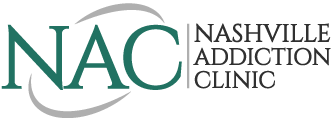Meth Addiction and Causes
Meth (methamphetamine) addiction has become widespread in recent years. Methamphetamine is an extremely addictive stimulant drug that wreaks havoc on individuals, families, and communities. Its widespread use has become a significant public health concern, making understanding its dangers and treatment options crucial.
Understanding Meth Addiction:
Meth addiction is a complex brain disease characterized by an impaired ability to control drug use despite its negative consequences. Chronic use alters the brain’s reward system, leading to an intense craving for the drug and difficulty experiencing pleasure from other activities. This creates a vicious cycle where individuals continue using meth to feel “normal” and avoid withdrawal symptoms.
Why Do People Become Addicted to Meth?
Methamphetamine addiction can develop for several reasons, often a combination of various factors. Here’s a breakdown of some key contributors:
- Intense initial effects: Meth’s initial use often leads to a powerful rush of pleasure due to the surge of dopamine in the brain’s reward system. Meth provides a “buzz” similar to taking cocaine, but far more intense. This intense experience can be highly reinforcing, leading individuals to use the drug again and again to replicate the feeling.
- Rapid development of tolerance: The brain’s reward system quickly adapts to repeated meth use, requiring higher doses to achieve the same level of pleasure. This tolerance buildup creates a cycle where individuals need more and more meth to feel the desired effects.
- Psychological dependence: Over time, meth becomes ingrained in an individual’s reward system and coping mechanisms. They may use meth to cope with stress, anxiety, or emotional difficulties, creating a psychological dependence.
- Underlying issues: Individuals with pre-existing mental health conditions, trauma, or social difficulties may be more susceptible to addiction as they may seek relief in the drug’s effects.
- Social factors: Peer pressure, exposure to drug use within social circles, and easy access to meth can increase the risk of initial use and subsequent addiction.
Signs and Symptoms of Meth Addiction:
While addiction can manifest differently in individuals, some common signs and symptoms of meth use and potential dependence include:
- Physical: Increased energy and activity, rapid heart rate, insomnia, weight loss, changes in appetite, skin sores, dental problems and darkness under the eyes is common.
- Behavioral: Risky behavior, neglecting responsibilities, secretive behavior, stealing, isolation from loved ones.
- Psychological: Mood swings, anxiety, paranoia, hallucinations, psychosis, difficulty concentrating, memory problems.
Consequences of Meth Addiction:
The consequences of meth addiction extend far beyond the user, impacting their physical and mental health, relationships, and livelihood. Some potential consequences include:
- Health problems: Heart attack, stroke, respiratory issues, liver damage, increased risk of infectious diseases like HIV/AIDS and hepatitis.
- Mental health problems: Psychosis, depression, anxiety, suicidal thoughts.
- Social and legal problems: Loss of relationships, job loss, financial problems, criminal activity.
Seeking Help for Meth Addiction:
Breaking free from meth addiction requires professional support and a comprehensive treatment plan. Fortunately, various evidence-based treatment options are available:
- Detoxification: This medically supervised process helps manage withdrawal symptoms and safely eliminate the drug from the body.
- Behavioral therapy: Individual and group therapy sessions address underlying issues contributing to addiction and teach coping skills to prevent relapse.
- Medication-assisted treatment (MAT): Medications like buprenorphine can help manage cravings and reduce the risk of relapse.
Seeking help can be the most important step towards recovery. Here are some resources:
- The National Drug Helpline: 1-800-662-HELP (4357)
- The Substance Abuse and Mental Health Services Administration (SAMHSA): https://www.samhsa.gov/
- The National Institute on Drug Abuse (NIDA): https://www.nih.gov/about-nih/what-we-do/nih-almanac/national-institute-drug-abuse-nida
Remember, recovering from meth addiction or opioid addiction is a journey, not a destination. If you or someone you know is struggling with meth addiction, reach out for help.
Get help with your opioid addiction today and start feeling better tomorrow. Whether you have TennCare Medicaid insurance, commercial insurance through Blue Cross Blue Shield, United Healthcare, or perhaps no health insurance, we have a program for you.
We are the TennCare Telemedicine Suboxone Program for All of Tennessee
Our TennCare telemedicine Suboxone program allows anyone living in the state of Tennessee the ability to get high-level opioid addiction treatment from the comfort of their own home. Take a look at the many program benefits:
- No traffic issues
- No having to wait in a clinic lounge
- No uncomfortable interactions with other people
- Use your cell phone, PC, Mac or tablet
- Pick up your Suboxone medications at your local pharmacy or have them delivered to your door.
Sign-up for The TennCare Telemedicine Suboxone Program for All of Tennessee
In just a few easy steps you can begin your appointment (often same-day most weekdays) and begin a new way of life that’s free from drug abuse.
- Choose one of the following links to sign-up:
- Fill-in your intake documents
- Perform a brief phone interview
- Get seen (usually same-day)
- Pick up your Suboxone medications at your local pharmacy or have them delivered to your door.
